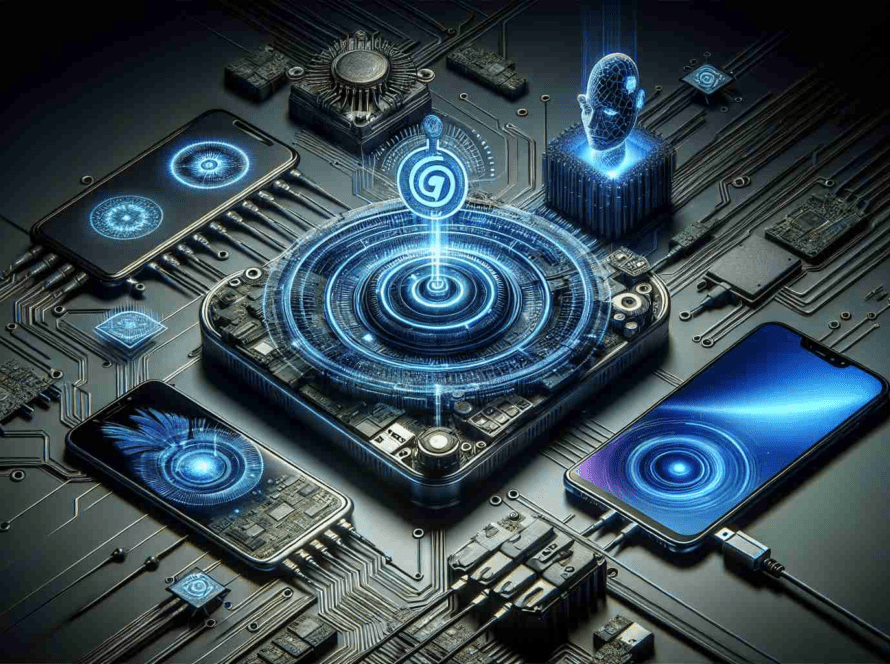Abstract:
Fusion power guarantees to be a clear, ample energy supply, probably fixing most of the power challenges confronted by our world at this time. Nonetheless, important technological hurdles have to be overcome to make fusion a sensible power supply. Synthetic intelligence (AI) has emerged as a robust software on this endeavor, providing the potential to speed up the event of fusion power options. This text explores how AI is being built-in into fusion power analysis, the challenges and alternatives it presents, and its potential impression on the way forward for power.
Synthetic Intelligence in Fusion Power:
AI refers back to the simulation of human intelligence processes by machines, particularly laptop techniques. Within the context of fusion power, AI can be utilized to optimize plasma containment, predict disruptions, enhance diagnostics, analyze huge quantities of knowledge, and management the dynamic processes inside a fusion reactor.
Fusion power harnesses the ability produced when atomic nuclei are mixed or fused. It’s the identical course of that powers the solar and stars. Attaining managed fusion on Earth requires excessive temperatures and pressures to power nuclei collectively, normally by means of gadgets like tokamaks or stellarators.
AI and machine studying algorithms supply the potential to revolutionize fusion analysis by offering new methods to deal with the complexity and dynamics of plasma habits, a key to sustaining fusion reactions. These applied sciences can automate the evaluation of fusion experiments, establish patterns or anomalies in information, and suggest optimizations for reactor design and operation.
Present Challenges and AI Options:
Whereas the idea of fusion is easy, the execution is awfully advanced. Sustaining a secure plasma state, as an example, is a major problem due to the excessive temperatures and the turbulent habits of charged particles. AI can establish and predict plasma instabilities, permitting for well timed changes to reactor situations that might make the distinction between success and failure.
Furthermore, fusion experiments generate an unlimited quantity of knowledge that may overwhelm conventional information evaluation strategies. AI, with its capacity to course of massive datasets, allows scientists to shortly interpret experimental outcomes, acknowledge successes, study from failures, and refine their strategy.
Predictive upkeep is one other space the place AI shines. It might probably anticipate when elements of a fusion reactor may fail, scheduling repairs and replacements proactively to attenuate downtime.
Alternatives and Future Impression:
As AI applied sciences mature, they may play a pivotal position in reaching the long-sought objective of sensible fusion power. This may not solely be a scientific breakthrough but in addition a monumental step in direction of a future with an environmentally benign and just about limitless supply of power.
Fusion energy has the potential to drastically scale back our reliance on fossil fuels, thereby slicing down greenhouse fuel emissions. In a world witnessing the consequences of worldwide warming, fusion energy affords a gleaming beacon of hope.
Definitions:
– Synthetic Intelligence (AI): The simulation of human intelligence in machines configured to suppose and act like people.
– Fusion Power: Power generated by fusing atomic nuclei, releasing power because of the mass-to-energy conversion described by Einstein’s equation E=mc².
– Tokamak: A doughnut-shaped equipment used to restrict sizzling plasma with highly effective magnetic fields within the pursuit of managed nuclear fusion.
– Stellarator: A tool just like a tokamak, used to restrict plasma for fusion, however with a twisted ring form designed to boost stability.
– Plasma: A state of matter composed of charged particles, discovered naturally in stars, and artificially in fusion reactors.
FAQ:
Q: What makes AI so essential for fusion power analysis?
A: AI is essential for fusion power analysis on account of its capacity to course of and analyze massive datasets, predict and handle plasma habits, optimize reactor design, and automate advanced processes.
Q: Can AI assure the success of fusion power?
A: Whereas AI supplies highly effective instruments and will vastly improve the probability of reaching sensible fusion power, there are not any ensures. The inherent scientific and engineering challenges of fusion make it a tough however not insurmountable activity.
Q: What are the potential environmental impacts of fusion power?
A: Fusion power affords the potential to be a clear energy supply with minimal environmental impression. It produces no greenhouse gases and minimal long-lived radioactive waste in comparison with typical nuclear fission energy.
Q: Is industrial fusion power at the moment accessible?
A: As of now, industrial fusion power will not be accessible. The know-how is within the analysis and growth section, and whereas progress is promising, sensible fusion energy will not be but a actuality.
Q: How can people and organizations become involved in fusion power analysis?
A: people and organizations can pursue careers in fusion analysis, assist insurance policies that fund fusion power growth, accomplice with analysis establishments, or have interaction in academic outreach to boost consciousness of the significance of fusion power.
As AI continues to advance and combine extra deeply with fusion power analysis, the prospect of a world powered by clear, sustainable, and limitless power turns into nearer to actuality. For additional exploration of this matter, respected sources such because the Worldwide Atomic Power Company (iaea.org) and the American Bodily Society (aps.org) can present precious data.


